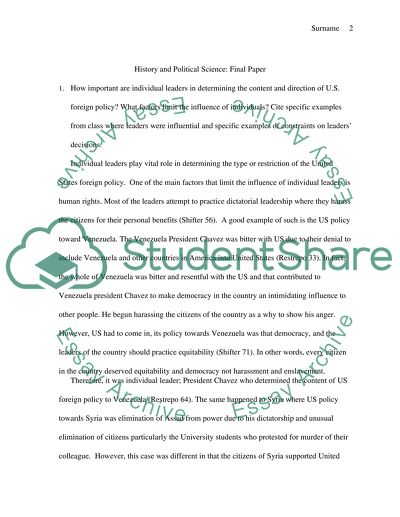Cite this document
(“Leaders, History and Political Science Article Example | Topics and Well Written Essays - 1250 words”, n.d.)
Retrieved from https://studentshare.org/philosophy/1393971-final-paper
Retrieved from https://studentshare.org/philosophy/1393971-final-paper
(Leaders, History and Political Science Article Example | Topics and Well Written Essays - 1250 Words)
https://studentshare.org/philosophy/1393971-final-paper.
https://studentshare.org/philosophy/1393971-final-paper.
“Leaders, History and Political Science Article Example | Topics and Well Written Essays - 1250 Words”, n.d. https://studentshare.org/philosophy/1393971-final-paper.


